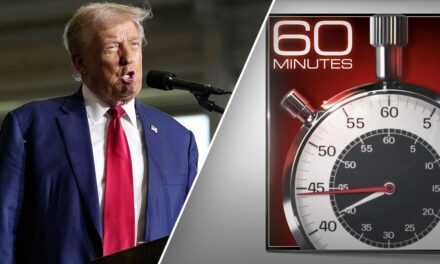In a recent development that has stirred significant conversation in political circles and among media analysts, a report by the Wall Street Journal that suggested President Joe Biden may be experiencing a decline in cognitive capacity has come under fire. The backlash against the report has not only targeted its content but also the implications it has for media integrity and the political landscape.
The Wall Street Journal, a prominent publication with a long history in American journalism, published an article addressing ongoing concerns about President Biden’s mental agility as he approaches the midpoint of his term. The report highlighted multiple instances where critics believe the President has shown signs of cognitive decline, including stumbles during speeches and public appearances. While the intention was to provide an objective analysis of the President’s performance, the framing and timing of the article have drawn sharp criticism from various media outlets and political observers.
Many observers of American politics argue that suggesting a decline in Biden’s cognitive abilities could serve to embolden those who have long criticized his presidency. Supporters of the President claim that the Wall Street Journal’s report is not only misleading but also out of touch with the realities of a difficult and demanding presidential role. They argue that every president faces challenges and that occasional verbal missteps should not be misconstrued as a loss of mental acuity.
In the wake of the report’s publication, various media commentators and political strategists took to social media and their platforms to voice their concerns. They claimed the Wall Street Journal’s article played into a larger narrative pushed by political opponents and certain factions within the media who seek to undermine Biden’s authority and credibility. Critics assert that the framing of the article fails to account for the extensive pressures that any president faces, particularly in a polarized political environment where misinformation is rampant.
Furthermore, media analysts have pointed out that the inclination to question Biden’s faculties feeds into a broader societal issue: the tendency of some news outlets to sensationalize stories to garner views or circulation. By choosing to spotlight concerns regarding a sitting president’s mental health, the Wall Street Journal could be deemed to have crossed an ethical line, prioritizing sensationalism over factual journalism. This has ignited discussions on journalistic integrity and the responsibility of media organizations in reporting on political figures.
The fallout from the report was immediate across various platforms. Political commentators highlighted how headlines and social media snippets played into a narrative that some believe exaggerates the actual situation surrounding Biden’s health and capability. A number of influential voices pointed out that the sensational approach of the article potentially shifts focus away from pressing issues such as the economy, foreign policy, and domestic unrest, all areas where Biden’s administration has sought to implement significant changes.
One of the notable responses to the Wall Street Journal’s report came from Democratic lawmakers and Biden’s own press secretary. They rallied around the President, emphasizing that occasional verbal missteps do not equate with cognitive decline. In fact, some asserted that the President has faced unprecedented challenges during his term, particularly during and after the COVID-19 pandemic, and that maintaining a public presence under such conditions is commendable.
The criticisms have not solely been directed at the Wall Street Journal, however. Several right-leaning media outlets also picked up the story, reinforcing theories about Biden’s fitness for office. This collaborative narrative aimed to strengthen concerns that the President might not be competent enough to lead effectively, which raises questions about how media narratives happen to shape public opinion in electoral politics.
This situation brings forth a larger conversation about the expectation of media neutrality and objectivity in political reporting. Many argue that responsible journalism requires a careful balance between skepticism towards authority figures and a substantiated factual analysis based on evidence. When articles appear to lack nuance or concrete evidence but still push damaging narratives, it can lead to a widespread credibility crisis.”
Activists and members of the President’s camp have begun advocating for media literacy, emphasizing the importance of scrutinizing how news is reported and consumed. They argue that a well-informed electorate is crucial to democracy, and misleading headlines can create panic and mistrust. The concept of misinformation in media is increasingly becoming a hot-button issue as political divisions continue to deepen.
As more discussions circulate around the Wall Street Journal’s report, it seems clear that the political implications are far-reaching. The discussions about Biden’s capabilities serve as a microcosm for larger questions concerning media representation, the responsibilities of journalists, and the ethics of reporting on mental health and cognitive function in public figures.
Political analysts predict that as the 2024 elections approach, the narratives surrounding President Biden’s cognitive abilities will likely become a central talking point for both supporters and detractors. Those loyal to the President may downplay the conversations fueling the credibility crisis, attributing the claims to partisan politics. Conversely, those opposed to his administration may seek to leverage these discussions to fuel their campaigns and call for change.
Moreover, the credibility crisis raised by the Wall Street Journal’s article may also influence potential presidential challengers in the Democratic primaries. Should discontent with Biden grow, his opponents could strategically use this narrative to position themselves as more capable and coherent candidates, fundamentally altering the landscape of the Democratic Party.
In conclusion, the media backlash against the Wall Street Journal’s report on President Biden’s supposed cognitive decline exemplifies the complex interplay between journalism, politics, and public perception in the contemporary American landscape. This incident serves to reiterate the importance of responsible reporting and the potential repercussions of sensational headlines. As the political arena continues to evolve, the responsibility of the media to present accurate, unbiased information remains paramount. Without this commitment to integrity, the credibility of the media—and indeed the political system itself—may suffer significant consequences, leading to a more divided and mistrustful society.
































